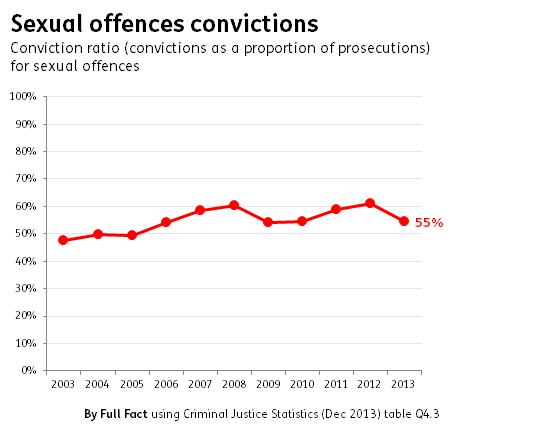What's behind the fall in convictions for sexual offences?
Papers and broadcasters this morning reported on the 'sudden' and 'alarming' drop in the conviction rate for sexual offence cases.
According to figures released yesterday, 10,365 people were prosecuted for sexual offences in 2013 of which 5,659 were convicted (most were sent to prison). In other words, 55% of proceedings resulted in a conviction, down from 61% in 2012.
This will come as a concerning decrease to some, although the Ministry of Justice cautions on how to interpret these numbers, pointing out that the increase could be partly explained by sexual offence cases taking longer, and so fewer convictions showing up in this year's figures than may have happened with shorter cases:
"The decrease in the conviction ratio for [sexual offences] coincides with an increasing proportion of sexual offences in outstanding cases (cases waiting to go to court). This increase could be because of the nature of these types of cases, meaning that more time is often spent building a case for the prosecution or defence, than with cases involving other offence groups."
Labour this morning linked this fall in convictions to the 'sharp' rises in recorded offences (they rose from 52,000 to 61,000) between 2012 and 2013.
But we should be careful about reading too much into this link. The Office for National Statistics has previously cautioned that evidence suggests these sharp increases have been partly as a result of increased coverage following the recent Jimmy Savile inquiry and as a direct result of the police's Operation Yewtree.
